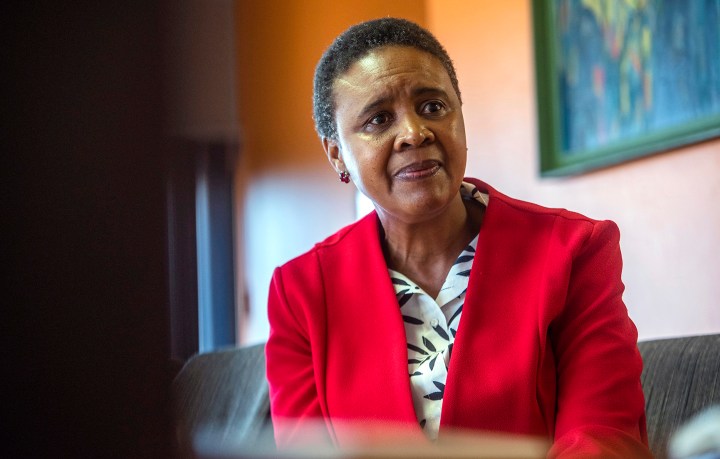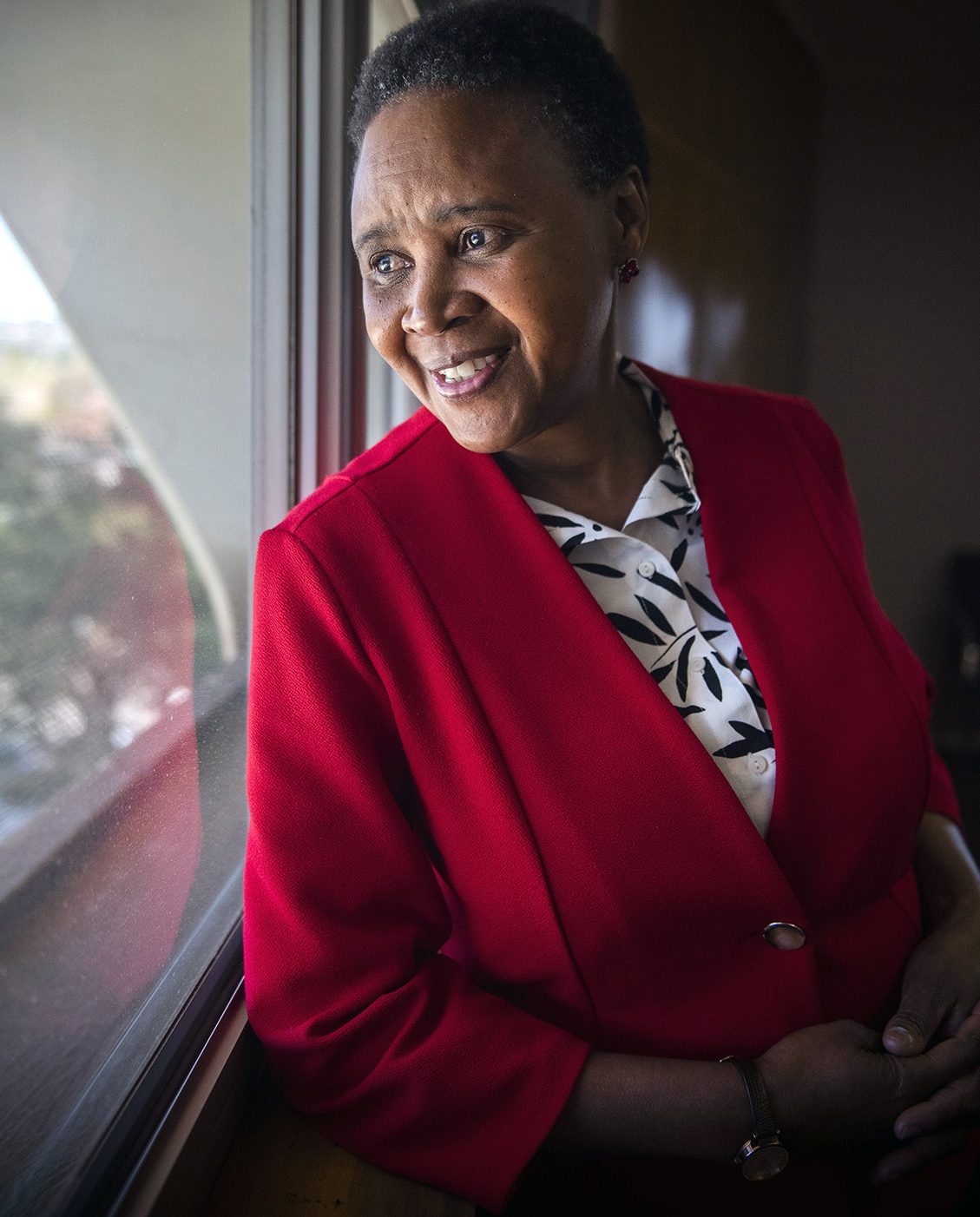FRIDAY ACTIVIST
Prof Sandy Africa: July 2021-scale national unrest is still happening, just in a different format

Prof Sandra ‘Sandy’ Africa works at the University of Pretoria’s political sciences faculty and is deputy dean of teaching and learning in the Humanities Department. However, it is her activism going back as far as the 1980s — and her recent appointment to the High-Level Review Panel on State Security after the unrest in July last year — that piqued Maverick Citizen’s interest.
The youngest of five children, Prof Sandy Africa is from Durban and says that her parents really valued education. “Growing up in the ’70s and ’80s, it was the typical life of a child growing up under apartheid with all the deprivations, but at the same time in a community that was very close and parents who were very supportive.
“My mother actually was my school teacher up until matric.”
Africa said that despite her parents’ humble earnings, they still managed to send all their children to some form of higher education.
“My father was a very defining character in my life,” Africa says, going on to describe him as very active in their community as a social worker, in addition to being a teacher. He often took her along when he went to assist people.

Despite her parents’ humble earnings, they still managed to send all their children to some form of higher education, says Prof Sandy Africa. (Photo: Alet Pretorius)
She credits this, as well as her elder siblings’ influence, for her joining the world of activism, citing the example of her older sister, who was a drama student, taking her to see the iconic anti-apartheid play, Sizwe Banzi is Dead, written by Athol Fugard in collaboration with John Kani and Winston Ntshona.
She also mentions, with a laugh, that her mom liked to remind the family that she shared a birthday with South Africa’s first democratically elected president, Nelson Mandela.
Her mom also introduced her to a librarian friend who she says was a fairly prominent political figure at the time, and who allowed her access to books that were banned in those days. The friend was at some point also banned for her political involvement.
Political activism
Africa says it was when she went to the then University of Natal that she got involved in organised political activism and was part of the University of Natal Black Students Association, which fell under the Azanian Students Association (Azaso) and the Durban Housing Action Committee. She also stood in Azaso elections and, after being elected to a leadership position, she says she found a great sense of community and inspiration being with others who were sociopolitically conscious and active.
Asked how her parents felt about her political involvement at the time, Africa answers, “Well, I had wanted to initially study journalism and my dad said ‘No! It’s too dangerous’,” which is ironic because her political studies got her into the often risky environment of activism, particularly as she was constantly being monitored and intimidated by the apartheid police.
UDF and ANC underground
Africa says she was subsequently recruited into the United Democratic Front and the ANC underground, and became part of the greater struggle for South Africa’s democracy.
While she had been working in a number of teaching and research jobs upon graduating, after the ANC won the 1994 elections, she was part of a team tasked with integrating the former Umkhonto weSizwe into the then SA Defence Force, as well as the non-statutory and statutory intelligence services within government. This meant redefining what these institutions should look like and how they should function in a democracy that required the centralisation of people’s needs, good governance, transparency and accountability in order to be responsive.
Visit Daily Maverick’s home page for more news, analysis and investigations
An arduous task, she concedes, because of the distrust between the ANC and the apartheid government. Africa was part of government from 1995 until her resignation in 2007, when she returned to academia.
Speaking about her involvement and assessments in the High-Level Review Panel on State Security last year, Africa says that what they found was not only incompetence, but an issue of capacity building. She says that after the Mufamadi Commission on the State Security Agency, it was only now that recommendations were beginning to be implemented and posts which had been vacant were starting to be filled.
July 2021 unrest
Asked whether she thought unrest on the scale of July 2021 was likely to occur again, she said that “it’s still happening… it may be that it’s happening in a different format, but it’s still happening. Whether it’s people breaking into premises, destroying public property, literally picking up railway tracks and walking off with them — cumulatively, you have a situation of the erosion of the state’s capability to do what it ought to do.”
Africa stresses that not only does the state have an obligation to provide service delivery and law enforcement, but it also needs to provide space for people to enjoy full lives.
“We ought to be more than just about survival and a baseline existence… people should be able to choose the kind of lives they would like to live. We barely talk about the things that make for a full human life because we are constantly in a state of anxiety.
“We ought to be allowed to live the kind of lives that will allow us to feel fulfilled, and yes, it is about having food on the table and a job and an education, but it should also be about what kind of education and what kind of food and what kind of job.”
Role of the middle class
The middle class must not be disengaged and must pressure government to provide this space for people to thrive, says Africa. She says those who are more fortunate than the poor need to inspire change from where they are.
She remains optimistic about South Africa’s civic engagement, saying that the country is in the process of a significant shift at the moment, and that we should not allow government to opt out of its responsibility to the people.
“We need to find the right balance again. We really somehow need to find the caring within us… we’ve actually become quite desensitised to so much that is so wrong in society. We need to just remind ourselves that we’re all human,” says Africa. DM/MC


















 Become an Insider
Become an Insider
Comments - Please login in order to comment.